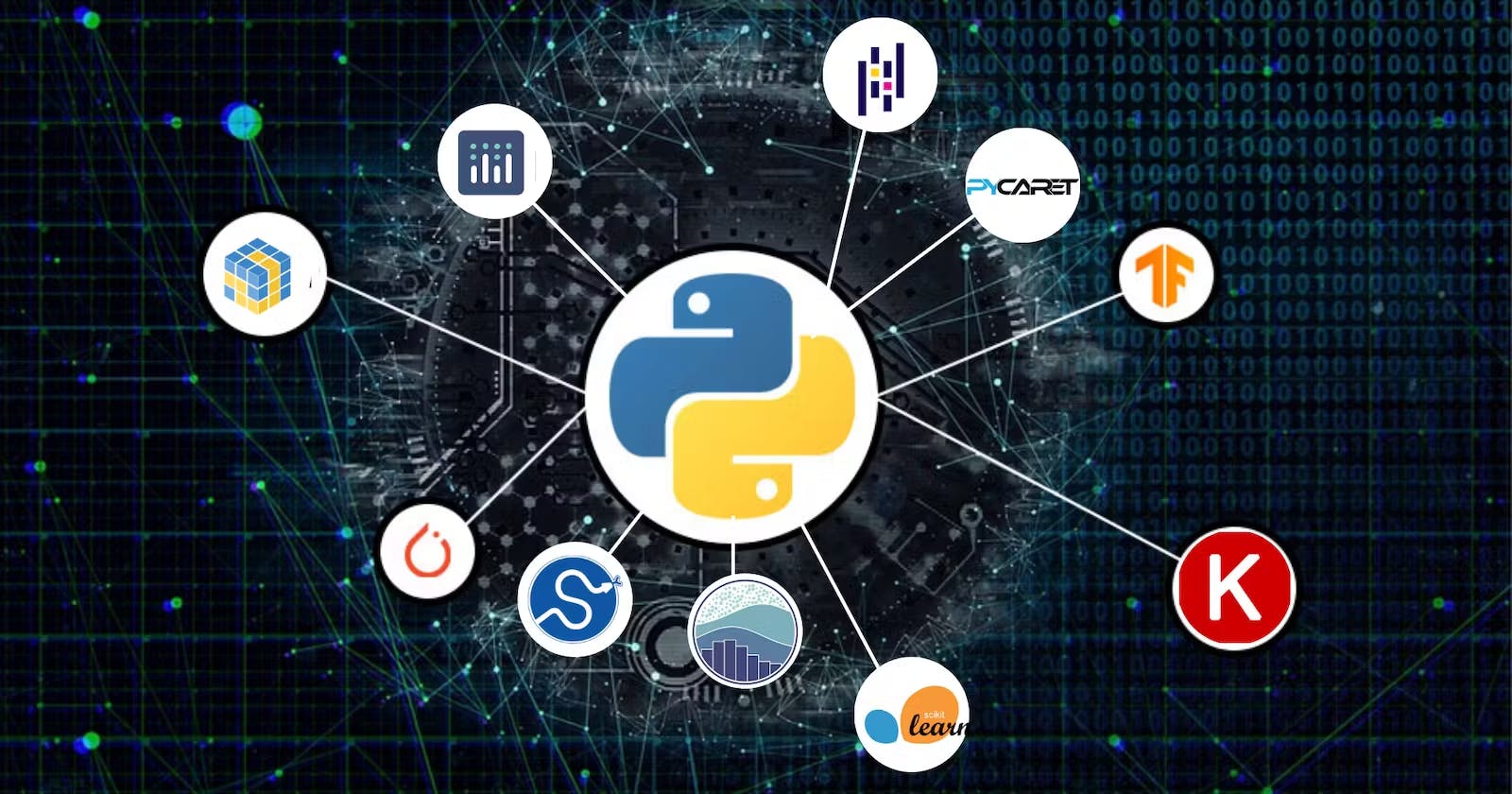Ansible:- Ansible is an open-source automation tool that can be used for configuration management, application deployment, and task automation. It allows you to write simple, human-readable playbooks that can be used to automate complex IT tasks. Use case: Automating the deployment of a web application on multiple servers.
Boto3:- Boto3 is the Amazon Web Services (AWS) SDK for Python, which allows you to interact with AWS services such as S3, EC2, and RDS using Python. This library makes it easy to write Python scripts to manage your AWS infrastructure. Use case: Automating the creation of Amazon EC2 instances.
Fabric:- Fabric is a Python library and command-line tool for executing shell commands remotely over SSH. It simplifies the process of executing commands on multiple servers and can be used for tasks such as deployment, management, and monitoring. Use case: Automating the deployment of a web application on multiple servers.
JenkinsAPI:- JenkinsAPI is a Python wrapper for the Jenkins REST API that allows you to programmatically interact from Jenkins server. You can use it to create, update, and manage Jenkins jobs, as well as to retrieve build information and statistics. Use case: Automating the creation of Jenkins jobs.
PyYAML:- PyYAML is a Python library for parsing and emitting YAML. It can be used to parse YAML files containing configuration information, and it’s commonly used in conjunction with Ansible. Use case: Parsing a YAML file containing Ansible playbook.
As a DevOps engineer, being able to parse JSON and YAML files in Python is indeed a crucial skill. Python provides several libraries to handle these file formats. Here are some commonly used libraries for working with JSON and YAML files:
JSON: The built-in
jsonmodule in Python allows you to work with JSON data easily.Example of reading JSON from a file:
pythonCopy codeimport json with open('data.json', 'r') as file: data = json.load(file)Example of writing JSON to a file:
pythonCopy codeimport json data = {'name': 'John', 'age': 30} with open('data.json', 'w') as file: json.dump(data, file)YAML: For YAML parsing, you can use the
PyYAMLlibrary, which is not a built-in library, so you need to install it separately.To install
PyYAML, you can usepip:Copy codepip install pyyamlExample of reading YAML from a file:
pythonCopy codeimport yaml with open('data.yaml', 'r') as file: data = yaml.safe_load(file)Example of writing YAML to a file:
pythonCopy codeimport yaml data = {'name': 'John', 'age': 30} with open('data.yaml', 'w') as file: yaml.dump(data, file)
As a DevOps engineer, you might encounter various scenarios where you need to read and manipulate configuration files, handle data interchange, or work with API responses, and these libraries will be very useful in such cases.
Remember to handle exceptions properly when reading files to account for potential errors, like file not found or invalid JSON/YAML formatting. Additionally, consider using version control systems (e.g., Git) to manage your code and configuration files efficiently, especially in a team-based DevOps environment.
Here are the 3 tasks:
Task 1: Create a Dictionary in Python and Write it to a JSON File
pythonCopy codeimport json
# Create a dictionary
data = {
"aws": "ec2",
"azure": "VM",
"gcp": "compute engine"
}
# Write the dictionary to a JSON file
with open("services.json", "w") as json_file:
json.dump(data, json_file, indent=4)
After running this code, you will find a file named "services.json" in the same directory containing the dictionary in JSON format.
Task 2: Read the JSON file "services.json" and Print the Service Names of Every Cloud Service Provider
pythonCopy codeimport json
# Read the JSON file
with open("services.json", "r") as json_file:
data = json.load(json_file)
# Print the service names of every cloud service provider
for provider, service in data.items():
print(f"{provider} : {service}")
After running this code, it will print the output as follows:
yamlCopy codeaws : ec2
azure : VM
gcp : compute engine
Task 3: Read YAML File "services.yaml" and Convert YAML to JSON
pythonCopy codeimport yaml
import json
# Read the YAML file
with open("services.yaml", "r") as yaml_file:
data = yaml.safe_load(yaml_file)
# Convert YAML data to JSON
json_data = json.dumps(data, indent=4)
# Print the JSON data
print(json_data)
Make sure to have the "services.yaml" file in the same directory as the Python script. The code will read the YAML file, convert its contents to JSON format, and print the JSON data on the console. You can then use this JSON data as needed for further processing or write it to a file if required.
